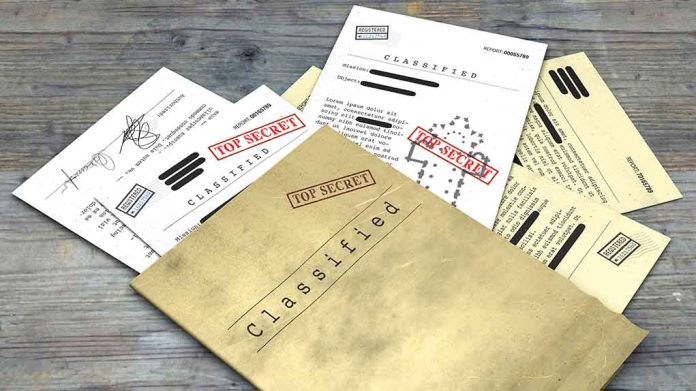
A criminal investigation has been launched after classified U.S. military intelligence about strikes on Iran’s nuclear program was leaked in what officials call a deliberate attempt to undermine President Trump’s successful military operation.
Key Takeaways
- The Pentagon and FBI have launched a criminal investigation into the leak of classified intelligence regarding U.S. strikes on Iran’s nuclear facilities.
- Defense Secretary Pete Hegseth characterized the leaked intelligence as a “preliminary assessment with low confidence” that has been manipulated by media to discredit President Trump.
- President Trump’s administration maintains the strikes “obliterated Iran’s ability to create nuclear weapons,” despite the leaked report suggesting limited impact.
- Seven B-2 bombers conducted the precision operation, dropping 14 bunker buster bombs on key Iranian nuclear sites including Fordow, Natanz, and Isfahan.
- Trump successfully negotiated a ceasefire between Israel and Iran, ending 12 days of aerial strikes.
Criminal Investigation Launched Over Intelligence Leak
At the NATO Summit in The Hague, U.S. Secretary of Defense Pete Hegseth confirmed that a criminal investigation is underway following the unauthorized disclosure of classified information regarding recent military strikes against Iran’s nuclear program. The leaked Defense Intelligence Agency (DIA) assessment, which suggested the strikes had limited effectiveness, has raised serious national security concerns. The FBI is now leading the investigation after media outlets including CNN and the New York Times published details from the classified report.
“We’re doing a leak investigation with the FBI right now, because this information is for internal purposes, battle damage assessments, and CNN and others are trying to spin it to make the president look bad when it was an overwhelming success,” said Secretary of Defense Pete Hegseth.
⚠️ WARNING: This post contains descriptions of military strikes & potential nuclear proliferation.
An early US intelligence assessment indicates that the recent US military strikes on three of Iran’s nuclear facilities (Fordow, Natanz, & Isfahan) did not destroy the core… pic.twitter.com/wuhPXoTKEK
— True Crime Updates (@TrueCrimeUpdat) June 25, 2025
Administration Defends Strike Effectiveness
The Trump administration has forcefully pushed back against claims that the strikes failed to significantly damage Iran’s nuclear capabilities. Defense officials maintain that the operation, which involved seven B-2 bombers dropping 14 bunker buster bombs on Iran’s underground Fordow enrichment facility, was precisely executed and achieved its objectives. Hegseth emphasized that the leaked assessment was preliminary and carried low confidence designations, making it an unreliable measure of the operation’s true impact.
“Based on everything we have seen — and I’ve seen it all — our bombing campaign obliterated Iran’s ability to create nuclear weapons. Our massive bombs hit exactly the right spot at each target — and worked perfectly. The impact of those bombs is buried under a mountain of rubble in Iran; so anyone who says the bombs were not devastating is just trying to undermine the president and the successful mission,” said Defense Secretary Pete Hegseth.
Israeli military spokesperson Brigadier General Effie Defrin has supported the U.S. assessment, stating that the joint operation delivered a significant blow to Iran’s nuclear program. President Trump himself has been unequivocal, declaring Iran’s nuclear program destroyed and comparing the impact of the strikes to the atomic bombs dropped during World War II. The operation targeted three key facilities in Iran’s nuclear infrastructure: Fordow, Natanz, and Isfahan.
Conflicting Assessments and Political Motivations
Secretary of State Marco Rubio has strongly criticized those responsible for leaking the classified information, suggesting clear political motives behind the disclosure. The administration contends that media outlets have mischaracterized the findings to damage the president’s credibility, despite the overwhelming evidence of the operation’s success. Some outside experts, including David Albright of the Institute for Science and International Security, have published analyses indicating significant damage to Iran’s nuclear facilities.
“This is what a leaker is telling you what the intelligence says, that’s the game these people play. They read it and they go out and characterize it the way they want to characterize it the way they want it characterized and they’re leakers, this is the game they play,” said Secretary of State Marco Rubio.
The contrasting assessments highlight the ongoing debate about the effectiveness of the strikes. While the leaked DIA report suggests Iran’s centrifuges and enriched uranium may remain intact, with nuclear weapon development delayed by only 6 to 12 months, the administration maintains that the operation was a comprehensive success that has effectively eliminated Iran’s nuclear weapons capability for the foreseeable future.
Trump’s Diplomatic Victory
NATO Secretary General Mark Rutte has publicly commended President Trump’s leadership in securing a ceasefire between Israel and Iran, ending nearly two weeks of aerial strikes. This diplomatic achievement demonstrates Trump’s ability to balance decisive military action with strategic diplomacy. The ceasefire represents a significant foreign policy victory for the administration, which has consistently prioritized containing Iran’s nuclear ambitions through a combination of pressure and negotiation.
“We think we hit them so hard and so fast, they didn’t get to move,” said President Donald Trump.
The Pentagon’s criminal investigation into the intelligence leak underscores the administration’s commitment to protecting national security while continuing to pursue its strategy of countering Iranian nuclear development. As the investigation proceeds, the administration remains focused on ensuring the lasting impact of its military strikes while maintaining the diplomatic gains achieved through President Trump’s leadership at the NATO Summit.




